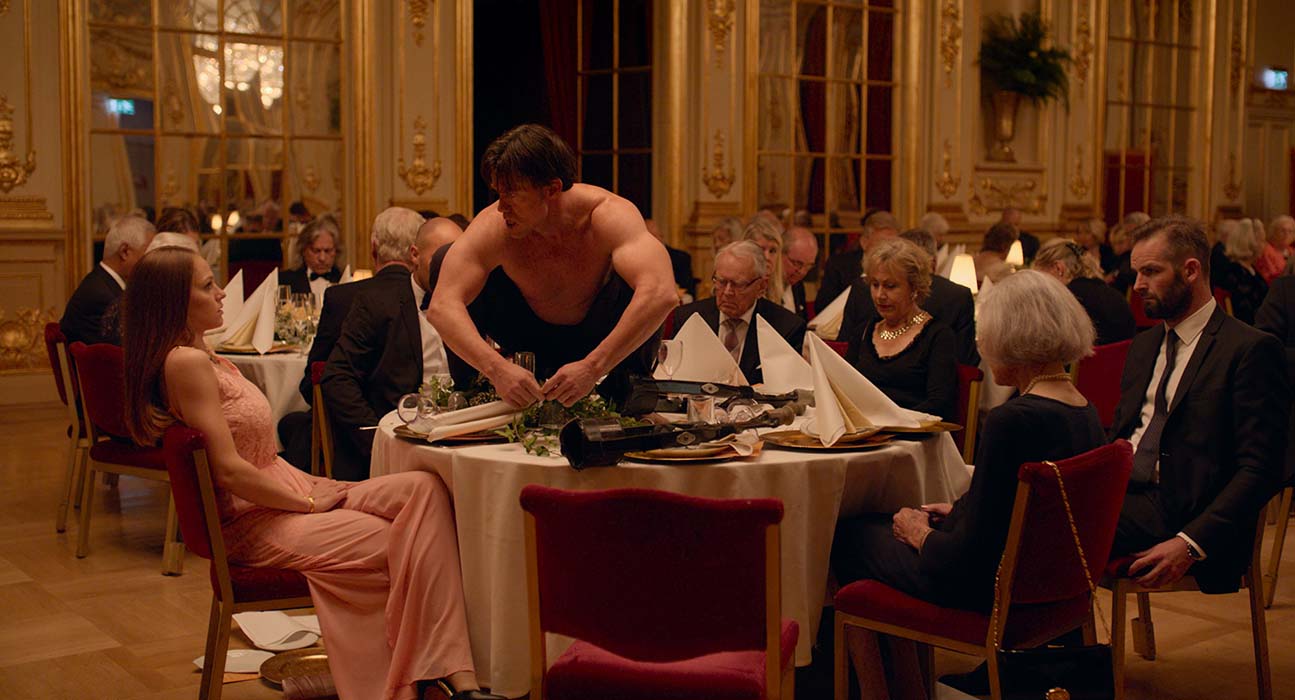Alternately silly and scathing, writer/director Ruben Östlund’s latest film, The Square—this year’s Palme d’Or winner at the Cannes Film Festival—offers audiences a thoughtful satire with a Swedish sensibility. The Square is nothing if not ambitious and it undoubtedly sets out to provoke, but it achieves only varying degrees of success. Its lead, Christian (Claes Bang), is the curator of the X-Royal art museum, housed in Stockholm’s Royal Palace, and he is constantly on the lookout for the next big name in avant-garde art. He is refined, modish, cultured—and incredibly pleased with himself for just these reasons.
The film’s central story wants to be one of redemption and enlightenment for Christian. It begins when he is robbed on the street, sparking a hunt to recover his stolen phone and wallet. Christian’s tech-savvy assistant, Michael (Christopher Læssø), traces the phone to an impoverished tenement building, and the two concoct a plan to spread menacing fliers throughout the building to scare the thief into returning Christian’s possessions. On the drive to their destination, Christian and Michael blare a pulsating tune by the electronic duo Justice and Michael comments on the aptness of the artist’s name, in light of their own quest for righteousness.
But by the end of the film—after terrorizing the tenement’s residents, abusing his power in order to seduce a reporter (Elisabeth Moss), and facing professional failure over an insensitive viral ad depicting an exploding toddler—Christian’s idea of justice has changed. However, the result is little more than quaint, even reactionary, moralizing. While Christian does develop as a character by the end, that’s saying very little when you consider where he begins. It’s difficult to feel too strongly about a character who starts out callous and grows into naivety.
The Square asks us throughout both to laugh at and relate to Christian, as well as the milieu of liberal intelligentsia he exemplifies and who populate most of the film’s scenes. At times, the preachy critiques of Christian’s selective and self-satisfying ethics approach the banal; early on, shots of beggars flicker across the screen as a clipboard-wielding activist asks stony passersby what they would do to save a human life. Christian blows by the activist, unfazed. The Square is genuinely hilarious at times and ridiculously smart at others, but it proves to be too clever for its own good. Its concern with glib witticism overwhelms its characters and its soul. It lacks focus and indulges too much in tangents that never quite fit together as well as one would like. Ultimately, the conclusion is just far too simple to justify the intellectual acrobatics that precede it.








